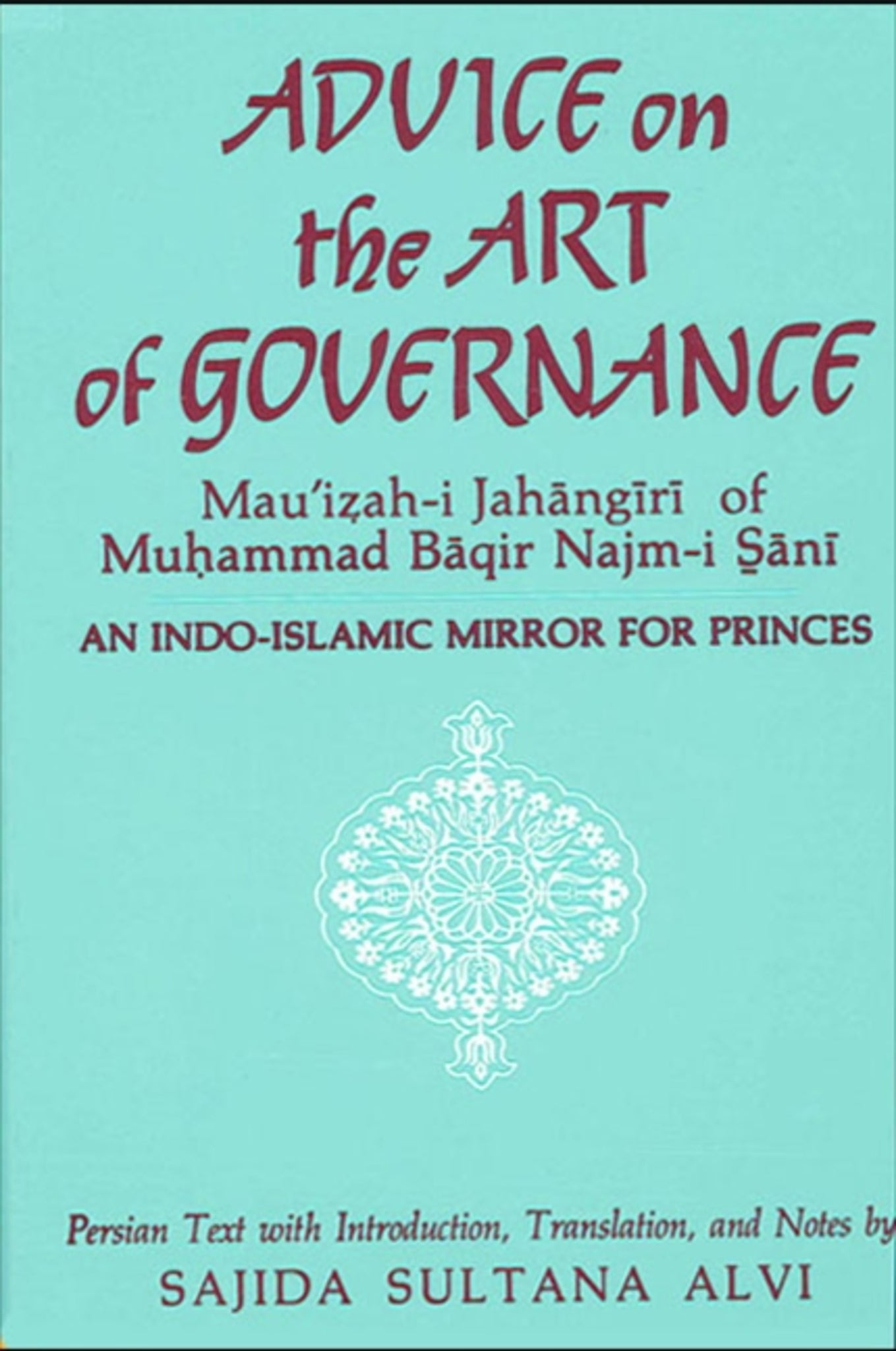We're sorry. An error has occurred
Please cancel or retry.
Advice on the Art of Governance (Mau'iẓah-i Jahāngīrī) of Muḥammad Bāqir Najm-i S̱ānī

Some error occured while loading the Quick View. Please close the Quick View and try reloading the page.
Couldn't load pickup availability
- Format:
-
03 July 1989

Advice on the Art of Governance portrays the political thinking of the Mughals and exemplifies Indo-Islamic political subtlety. Written by a high-ranking Mughal noble in the early seventeenth century, it discusses the ruler, the state, the nobility, justice, the religious elite, the st rata of society, and the various skills required for managing the state. Besides the intricacies of statecraft, the author discusses topics ranging from the problems and concerns of a member of the intellectual and ruling elite to those dealing with friendship, power of wealth, contentment, self-seclusion, and the agonies and rewards of an emigre.
Dr. Alvi's Introduction presents the first detailed thematic analysis of the Indo-Islamic Mirrors for Princes written from the thirteenth to seventeenth centuries. Presented in a highly re adable English translation with explanatory notes, the book is of central importance to scholars and students of intellectual, literary, institutional and social history of Mughal India and of medieval and early modern Islamic history.


"It makes available a good specimen of an important genre of political writing—Mirrors for Princes—from Muslim India. The translation is accurate and fluent, and the introduction and annotations very good."—Said Amir Arjomand, SUNY, Stony Brook
"The translator reveals lots of interesting information in her introduction. The later Indian mirrors for princes have not been well studied, and she brings in a good deal of comparative material that not only places the present text in its intellectual context, but is also suggestive of ideas for future research."—William L. Hanaway, University of Pennsylvania
Preface and Acknowledgments
Introduction
Editing and Translation of the Text
Translation
I. On the Exhortation of the Emperors
Introduction
1. On Justice and Discipline
2. On Generosity, Bravery, and Forbearance
3. On Consultation Against Planning
4. Guarding Against Enemies
5. On Not Acting Upon the Advice of a Selfish Person and Not Permitting a Conspirator and Calumniator in the Council
6. On Training Servants
II. The Admonition of Subordinates and Peers
1. Associating and Intermingling with Friends
2. In Condemnation of Poverty, and on Endeavors for the Acquisition of Wealth
3. Submitting to the Divine Will, Contentment and Solitude
4. Striving for Accomplishments and Divine Consent
Introduction Notes
Translation Notes
Persian Text
Index



